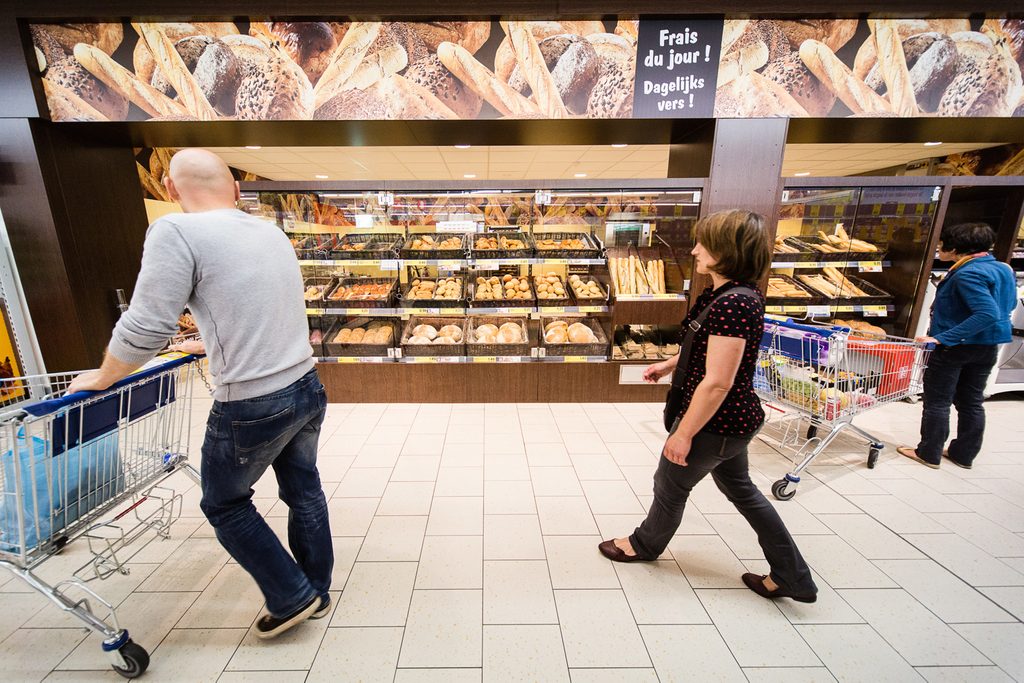Belgian supermarkets are facing their most difficult situation in 30 years, with margins falling to an all-time low, trade federation Comeos commented on Wednesday, in reaction to a survey by Testachats.
In its survey, the consumer organisation reported persistent inflation within the food retail sector.
Testachats arrived at an inflation rate of 17% compared to June 2022, by comparing the prices of 3,000 products in 7 supermarkets with last year’s prices.
While the consumer organisation notes a very slight fall in prices on the shelves, it is “far too small compared with the fall in prices on international wholesale markets,”it said.
“It is clear that consumers are still a long way from benefiting from these positive developments,” noted the organisation, which has alerted the Brussels-Wallonia Federation’s Competition Authority to its findings
In March, Testachats recorded “record inflation” of over 20% in supermarkets. Three months later, inflation is still stagnating at 17%.
Inflation is falling, “but too slowly,” while the prices of energy and certain raw materials have fallen sharply, it argues.
The organisation points to international cereal prices, have been falling since October 2022, as evidence of this. Since then,"of the 32 types of flour studied in the Testachats basket, only 10 have become cheaper, five have kept the same price and 17 have become more expensive,” Testachats points out.
The situation is “even worse” for edible oil: since the fall in international vegetable oil prices in March 2022, no cooking oil has seen its price fall.
This month, vegetables once again top the list of most expensive food products.
Consumers are now paying an average of 33% more for vegetables than they were a year ago. Carrots (+70%), onions (+63%), ketchup (+48%), mustard (+46%) and frozen chips (+39%) complete the list.
These findings prompted Testachats to call on the Competition Authority to investigate the issue of greedflation. While supermarket prices can sometimes rise quickly in response to higher wholesale prices on the international market, price drops take longer to be passed on, notes the organisation.
Are producers or distributors benefiting?
According to the European Central Bank, ‘Yes.’ According to the National Bank, ‘No.’
“We urgently need objective data on this so that we can take the necessary measures to protect household purchasing power”, Testachats spokeswoman Julie Frère explained.

